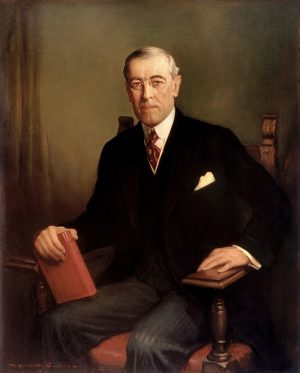Thomas Woodrow Wilson (1856-1924) was the 28th president of the United States, serving two terms from 1913 to 1921. While his presidency is often remembered for leading the country through World War I, Wilson was also a progressive reformer who worked to improve the lives of Americans. During his time in office, Wilson and the Congress (which was controlled by his Democratic Party from 1913 to 1919) enacted several pieces of legislation that were intended to regulate the economy and help businesses compete fairly.
Overview of the Progressive Movement
The Progressive Movement was a period of widespread reform in the early 1900s, and it brought widespread changes to American society. The movement arose in response to the negative effects of industrialization, such as child labor, poor working conditions, and corruption in both government and big businesses. Progressives sought to regulate the private industry, strengthen worker and consumer protections, expose political misconduct, and make the government more responsive to the needs of ordinary citizens.
Woodrow Wilson and the Progressive Movement
The New Freedom was Wilson’s campaign platform. The New Freedom aimed to reduce the power of big businesses and restore competition to the marketplace. It was his plan for progressive reform and included measures for tariffs, banking, and business reform. In his Inaugural Address, Wilson vowed to reform the industrial system, which “holds capital in leading strings, restricts the liberties and limits the opportunities of labor, and exploits without renewing or conserving the natural resources of the country.”
President Wilson’s Progressive Reforms
Wilson worked to implement his progressive vision at the federal level. Some of his most notable accomplishments include:
– The Federal Reserve Act (1913): created a central bank and regulated the financial system
– The Underwood-Simmons Act (1913): re-established a federal income tax and lowered tariff rates
– The Clayton Antitrust Act (1914): strengthened antitrust laws and prohibited monopolies
– The Federal Trade Commission Act (1914): created the Federal Trade Commission to investigate unfair business practices and regulate interstate commerce
– The Keating-Owen Child Labor Act (1916): forbid interstate commerce of goods made by child labor
– The Adamson Act (1916): established an 8-hour workday for railroad workers
– The Volstead Act (1919): established the prohibition of alcohol
– The 19th Amendment (1920): granted women the right to vote
Conclusion
President Woodrow Wilson was a progressive reformer who made significant changes at the federal level. Some historians call his administration an “activist presidency” due to the number of reforms he championed. These reforms aimed to improve the lives of Americans and reduce the power of big businesses. While some of his reforms were later undone, such as prohibition, his legacy continues to impact American society today. The prohibition of alcohol was controversial, with some people believing it was a violation of personal liberty, while others saw it as an effective way to reduce crime and improve public health. Wilson also worked to improve conditions for workers, signing into law the eight-hour workday and the minimum wage. The 19th Amendment, which granted women the right to vote, has had a lasting impact on American democracy.
